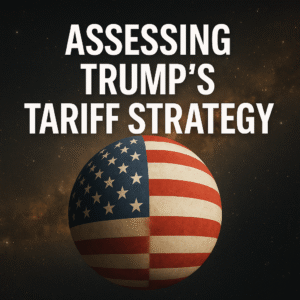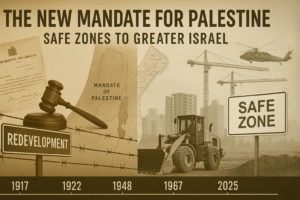Geopolitical Briefing: Sub‑Saharan Africa
14 August 2025
- South Africa submits revised trade offer to the U.S. amid persistent tariff pressure.
- Lesotho declares “state of disaster” as Trump-era tariffs collapse its AGOA-fueled textile industry.
- DRC and Rwanda sign U.S.-mediated peace agreement, aiming to withdraw troops and foster economic integration.
- DR Congo appoints veteran mining executive as new mines minister amid strategic reassessment of cobalt policy.
- Central African Republic resists Russia’s shift from Wagner Group to state‑run Africa Corps, insisting on resource-based compensation.
South Africa has submitted a revised trade proposal to the United States, targeting concerns cited in the 2025 National Trade Estimates Report, including sanitary and phytosanitary standards, as it seeks relief from a punitive 30 % tariff imposed recently (Reuters, The Washington Post, Wikipedia, Reuters, The Times). This action reflects Pretoria’s attempt to preserve export access while gradually recalibrating economic orientation toward intra‑African and Asian markets, thereby reducing Western dependence and asserting trade sovereignty.
Lesotho has declared a national “state of disaster” in response to the economic devastation caused by the abrupt collapse of its textile sector, which had thrived under AGOA’s trade privileges for 25 years. The new U.S. tariffs have triggered factory closures and widespread job losses (The Washington Post). The crisis underscores the vulnerabilities of African economies tied to Western trade frameworks and reinforces the imperative for diversified trade alliances and stronger regional industrial integration.
The Democratic Republic of the Congo and Rwanda signed a peace agreement in Washington D.C. on 27 June 2025, under U.S. and Qatari mediation. The accord mandates Rwandan troop withdrawal from eastern DRC within 90 days and cessation of Congolese support to FDLR, while also laying groundwork for a joint economic integration framework (Stimson Center, Wikipedia). This development enhances regional diplomatic autonomy and opens pathways for sovereign resource management through stabilized borders and emerging inter-state economic frameworks.
In Kinshasa, the DRC’s cabinet appointed veteran mining executive Louis Watum Kabamba as the new Mines Minister amid heated debates over cobalt export policy. His record includes roles in major mining ventures such as Ivanhoe Mines and Randgold’s Kibali project (Reuters). The government is considering shifts from outright export bans toward quota systems favoring domestic refining and industrialization, signaling a strategic pivot toward leveraging scarce minerals for internal development and external negotiation leverage.
In the Central African Republic, President Touadéra’s government has resisted Russia’s push to replace the Wagner Group with the state-controlled Africa Corps. Bangui prefers continuing compensation through mining-generated revenues—particularly gold, uranium, and iron—instead of costly cash payments (Reuters, The Times). This stance preserves local control over strategic resources and validates the established bond with Wagner, reinforcing political autonomy and economic agency amid growing Russian military ambition.


